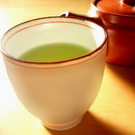Articles tagged with: Green Tea
NewsFlash »
Viracept Demonstrates Anti-Myeloma Activity – Results of a recent preclinical trial show that Viracept (nelfinavir), alone or in combination with other common myeloma drugs, prevents myeloma cell growth and causes cell death. Viracept is a protease inhibitor and is approved in the United States and Canada for the treatment of HIV. Studies have suggested that protease inhibitors such as Viracept may be effective against cancer. It is thought that they may work similarly to proteasome inhibitors like Velcade (bortezomib), In this preclinical study, Viracept enhanced the anti-cancer activity of myeloma drugs Velcade and dexamethasone (Decadron) as well as the epilepsy drug -- and potential anti-cancer agent -- valproic acid (Depakote, Depakene). Viracept also slowed tumor growth in mice with myeloma. For more information, see the study in Haematologica (pdf).
Study Helps Demonstrate How Green Tea Fights Myeloma – EGCG, an active compound in green tea, has previously been shown to have cancer preventative and cancer fighting properties. However, little was known about the way EGCG works to fight cancer. In this recent preclinical study, Japanese researchers showed that EGCG works by disrupting the outer membrane of myeloma cells, but not healthy cells, thereby selectively killing myeloma cells. For more information, please see the study in Biochemical Journal (pdf). For information about green tea blocking the effectiveness of Velcade, see related Beacon news.
ACY-1215 In Combination With Velcade Shows Potential As Myeloma Treatment – The results of a recent preclinical study show that low doses of ACY-1215 in combination with Velcade kill multiple myeloma cells. ACY-1215, which is being developed by Acetylon Pharmaceuticals, belongs to a class of drugs called HDAC inhibitors. Zolinza (vorinostat) and panobinostat are also HDAC inhibitors that are being studied for the treatment of myeloma. The study showed that ACY-1215 in combination with Velcade slowed tumor growth and extended the overall survival of mice with myeloma. ACY-1215 is currently being studied in a Phase 1/2 clinical trial in combination with Velcade and dexamethasone in patients with relapsed/refractory multiple myeloma. For more information or to enroll in the trial, please see the study in Blood (abstract) and the clinical trial description.
NVP-HSP990 May Be Active Against Myeloma – Results of a recent preclinical study show that NVP-HSP990, alone or in combination with other myeloma treatments, may be effective at treating multiple myeloma. NVP-HSP990, which is being developed by Novartis (NYSE: NVS), is a heat shock protein 90 inhibitor like tanespimycin, which was in Phase 3 trials for myeloma when its development was halted in 2010. The recent study showed that NVP-HSP990 killed myeloma cells in the laboratory, and this activity was significantly enhanced in combination with melphalan (Alkeran). For more information, see the study in Anticancer Research (abstract).
News, Resources»

This article is the second in a two-part series about nutrition for multiple myeloma patients. The first article provides an introduction to nutrition for cancer patients as well as tips for getting the right nutrition. This, the second article, describes sources and amounts of nutrients that are important for myeloma patients.
Taking nutritional supplements is common among multiple myeloma patients and other cancer patients. These supplements, including vitamins, minerals, and various plant compounds, may be important to keep the body …
News»

Researchers have discovered that green tea inactivates the anti-cancer properties of Velcade (bortezomib), a promising and frequently used drug for treating multiple myeloma.
In recent years, green tea products have become a popular health supplement after studies demonstrated that one of its active compounds, EGCG polyphenol, can act as a potent anti-cancer agent. “Cancer patients look to green tea extracts among other natural supplements to complement their therapeutic regimens,” said Axel Schonthal, Ph.D., of the University of Southern California Keck School of Medicine.
With this information in mind, a recent study …

